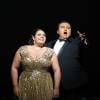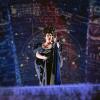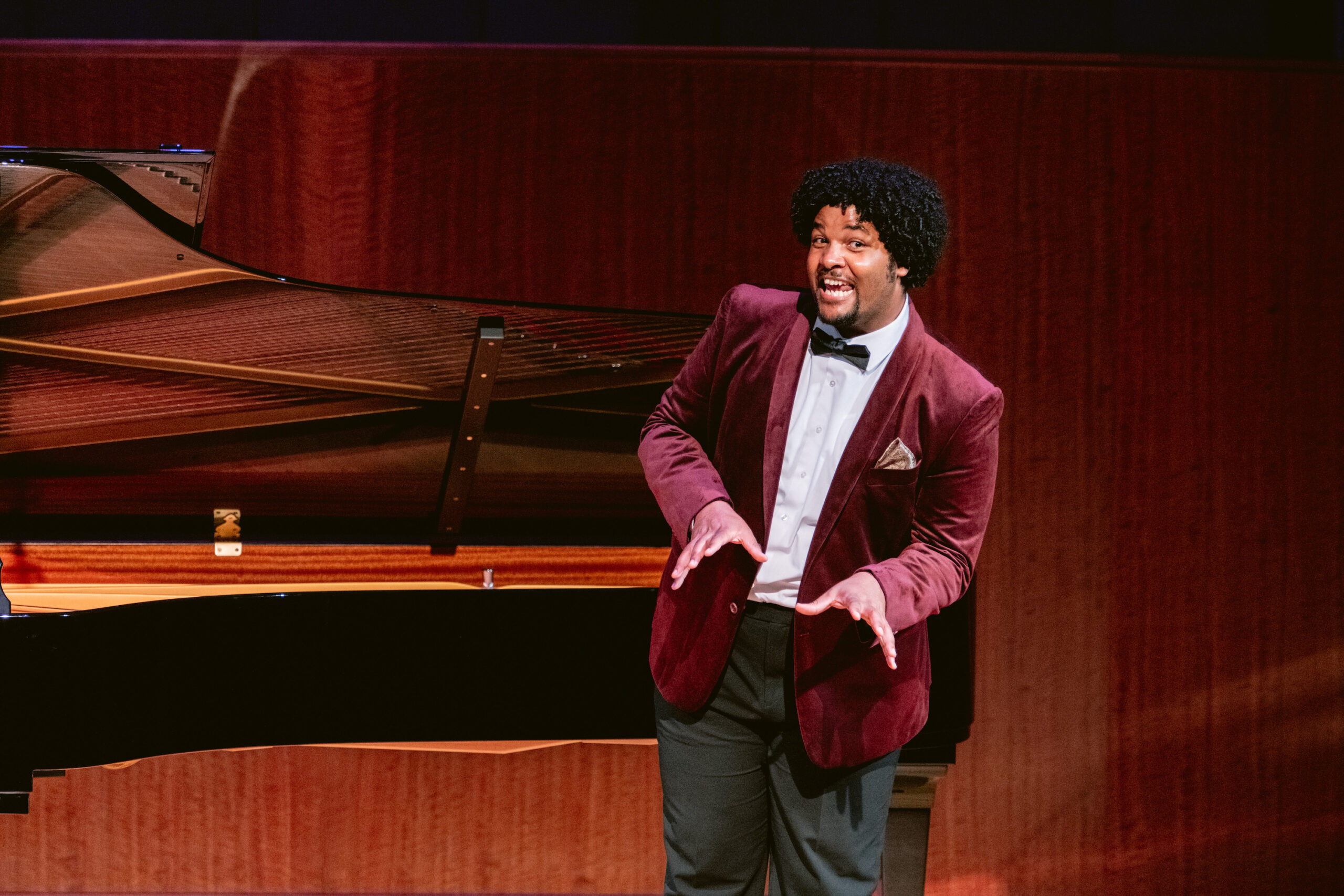
In a kaleidoscopic opening to its summer season of public performances, the Merola Opera Program, San Francisco Opera’s esteemed training camp, gave seven young singers the chance to shine in a Thursday, June 29 evening of art songs at the San Francisco Conservatory of Music. And shine they did, with various degrees of luster and brightness, in the thematic program “Metamorphosis: Recovery, Renewal, and Rebirth.”
Songs by Schubert, Samuel Barber, Robert Schumann, Gabriel Fauré, and Mahler (both Gustav and Alma) shared the bill with such lesser-known worthies as Errollyn Wallen, Jocelyn Morlock, and Robert Owens. Curated by Merola Artistic Director Carrie-Ann Matheson and tenor Nicholas Phan, the selections were grouped into nine titled sets, with “Will Spring Come Again?” “Music as Healer,” and “Redefinitions” among them. Five adroit pianists circled in and out as accompanists.
Change, as Matheson said in opening remarks, is essential to the experience of young singers, who face the discomfort, fear, and hope of whatever lies ahead. The “Metamorphosis” title registered on multiple levels. To a one, the Merolini (the informal team moniker) plunged into this brave new public world with conviction and grace, technical chops, and assured stage presence.
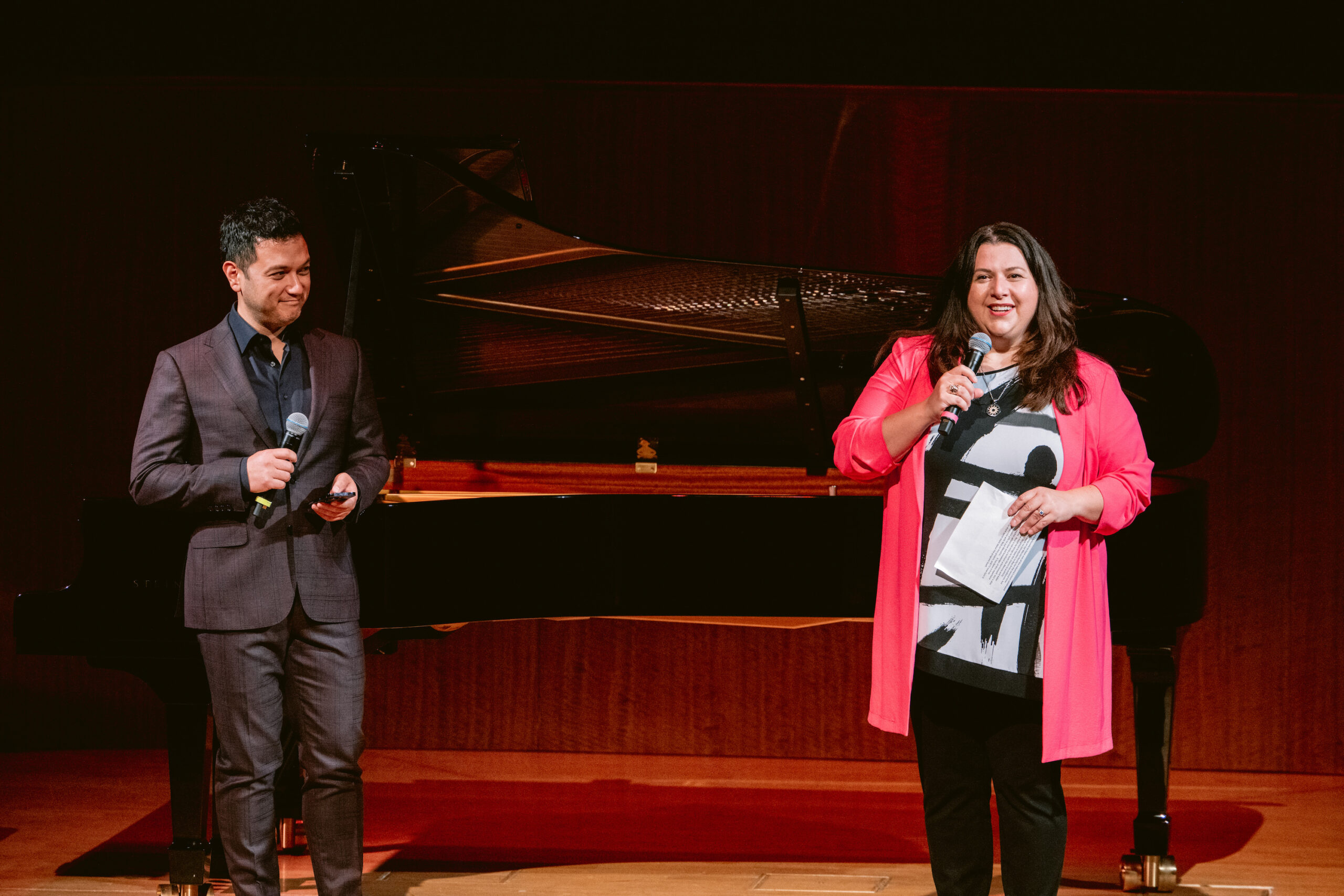
Dominated by men in the first half and women in the second, the group recital got off to a rousing, borderline raucous start with tenor Demetrious Sampson Jr.’s ringing launch of Amy Beach’s “Ah Love but a day.” His fortissimos could have filled a house three times as large. It served as the evening’s youthful, headstrong wake-up call.
After making a subtly telling impression, in his close reading of Samuel Barber’s “Invocation to Youth,” bass-baritone Finn Sagal went on to greater heights in Schubert’s “An die Musik,” his voice both tender and blooming, and then in a superlative account of Wallen’s emotionally probing “What shall I sing?” Sagal’s lustrous tone — solid, offset by keen, at times suitably biting phrases — made the Walllen number one of the program’s dramatic high points.
Two baritones also made strong, if somewhat even showings. Cameron Bolling was vivid in Owens’s “Vorfrühling,” where he conjured some haunting “strange things in the breeze.” Samuel Kidd sang two French works, by Fauré and Ernest Chausson, with a cohesive blend of caressing phrases and dynamic intensity. His hot-blooded performance of Chausson’s “Le chevalier malheur” was especially fine, calmly devastating at first and then driven with rising, intimate focus later on. “A heart in me was reborn,” he sang exultantly, and made a listener believe it.
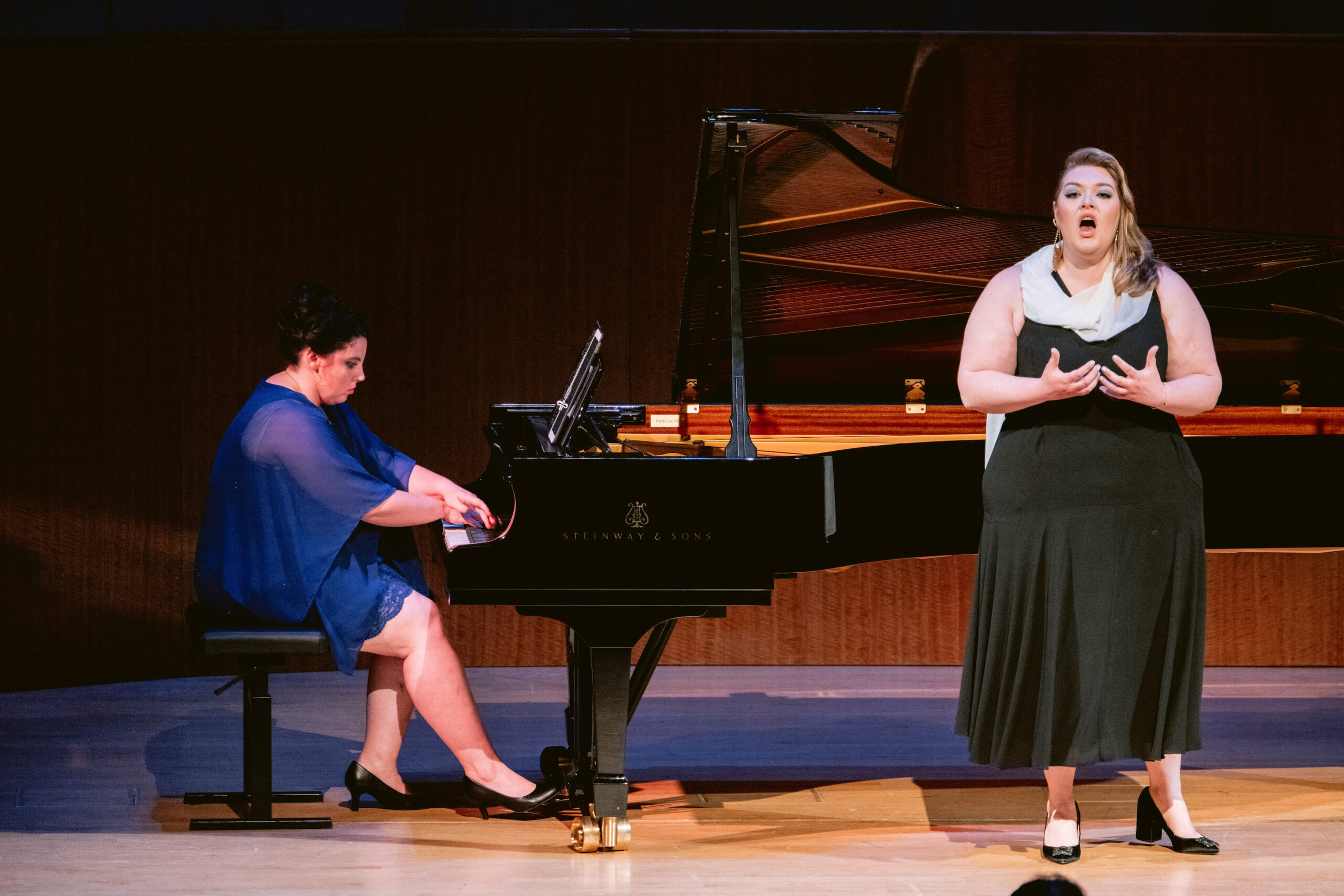
More treasures, perhaps the most memorable of all, came after intermission, when the commanding mezzo-soprano Simona Genga took the stage. In her three numbers — Jocelyn’s Morlock’s densely despairing “Somewhere Along the Line,” Schubert’s stormy “Die junge Nonne,” and Alma Mahler’s poignant “Die Stille Stadt,” with its shining image of a hymn-singing child — this remarkable young singer came across as a vocal artist fully formed. Her voice soared and scoured, murmured and raged, without ever losing its richly textured and seamless radiance. A supreme sense of the moment, delicately poised on the knife-edge of hauteur, added another dimension. Turing slightly sideways, she looked back at the audience to deliver an imperious, complicated slash of character. Genga had the audience in her grip from her first masterly measures to the last.
While nothing else passed that high bar, there was plenty to savor. Tenor Sampson Jr. put his vigor to good use in Florence Price’s “The Poet and His Song.” Mezzo soprano Joanne Evans covered some gaps in her voice with a gentle, ingratiating tone. Soprano Juliette Chauvet, who waded bravely into the fervor of Olivier Messiaen’s “Resurrection,” surely the most challenging song of the evening, did so with a cutting metallic sheen that didn’t serve the piece. She and Evans teamed up on the only duet of the night, a lucidly voiced “Le réveil” by Chausson.
In the one programming gaffe, this “Metamorphosis” ended in a lighter, comic set that should have come earlier. Having bass-baritone Sagal lumber through Red Riding Hood’s pert sexual initiation number, “I know things now” from Stephen Sondheim’s Into the Woods, was an especially self-defeating choice.
But the lame ending didn’t dim what had come before. Memories were made and promising futures declared. As ever, watch and listen to the Merolini for some major coming attractions.



